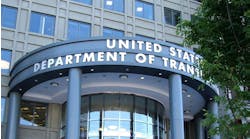Editor's note: This is a continuation of a story posted on Monday. Read part 1.
TravelCenters of America (TA) and Pilot Flying J have both developed technology enabling drivers to reserve a space for a fee.
“Being able to reserve a spot is critical in major metro areas due to the relative scarcity of parking spaces, but also the greater likelihood of experiencing delays due to traffic, accidents, loading/unloading problems or construction,” said Tom Liutkus, a spokesman for TA.
“We developed an algorithm based on hundreds of thousands of data points that can accurately predict parking availability,” Liutkus said. “Having this data available enables drivers to plan their routes and reserve spaces ahead of time, so they have a spot waiting for them, especially in tight parking freight corridors.”
Drivers can reserve spaces at TA through its app, website, call center, kiosks, or fuel desk attendants. Each reservation lasts from 4 p.m. through 3 p.m. the following day.
Mike Rodgers, chief strategy and information officer for Pilot Flying J, said the chain provides more than 73,000 truck parking spaces and is on track to add more than 900 spots by the end of the year.
Pilot Flying J offers Prime Parking, which allows drivers to reserve a spot at more than 350 travel centers. Technology enables drivers to see available spots at the locations, including reserved spaces, and reserve spots via the Pilot Flying J app, online or through calling a toll-free number.
The reservations are good for 24 hours, beginning at 4 p.m. on the day of the booking.
Targeting local areas
With TruckPark, drivers can pay to reserve a spot for a 12-hour window. TruckPark, based in Chicago, works with private enterprises, such as truck stops, repair facilities, and retail establishments, which dedicate a certain number of spots to the app. It has 80 locations.
“The most prevalent are in the major metropolitan hubs. That is because, statistically, the metropolitan areas are where drivers have the hardest time finding parking,” said Anthony Petittee, CEO of TruckPark.
Steve Scherrer, CEO of Chicago Truck Parking, offers 50 reserved spaces through TruckPark at one of his four paid-parking locations. Most of the spots are dedicated to long-term rentals that last six months or more, but he said the app allows him to capture a potential new customer base.
Truck Spot, a parking and technology provider, offers paid parking at nine locations in Florida. Through its app, drivers reserve a spot either for a day or a month and even sublease it out when they aren’t using it, said CEO Bryn Wells. “Drivers are more comfortable with the technology now.”
Pay for reserved spots?
Parking research from the American Transportation Research Institute (ATRI) found that 15% of drivers said their fleet paid for truck parking reservations. “Those drivers view it as an added perk and a reason why they liked driving for that fleet. It took one less stressor out of their day,” said ATRI President Rebecca Brewster.
However, some drivers said the growing number of paid, reserved spaces can cause aggravation.
“Sometimes you go to these truck stops, and those reserved spots stay open all night long,” said Tim Chelette, a professional driver for Big G Express.
Gary Helms, a driver for Covenant Transport, said he has used an app or called to reserve a spot and been told they’re all reserved. “Then I got there and saw there were several spots available,” he said. “Drivers will reserve that spot and then park somewhere else, or they didn’t figure their time correctly and did not get there.”
Helms added that non-reserved spots fill up fast. “You either have to pay for a reserved spot or park somewhere else,” he said.
Chelette said paying for parking can be cost-prohibitive for some.
“Say you use those reserve parking spots for six days, and it’s $15 a day. It adds up,” he said. “At Big G, we have 545 trucks. If they paid for everybody to get a parking spot every night, you’re looking at $300,000 a year. They can’t do it.”
TA provides about 85% free parking within its network of locations. While most drivers prefer free parking, Liutkus said a growing number of drivers prefer to use reservation services, and regular customers can reserve spaces with reward points or earned credits.
“It simply adds to their efficiency by having a spot already in place when they arrive, much like a hotel reservation to a business traveler,” he said.
Continue to Part 3: Balancing the need for safety with the economics of truck parking.



